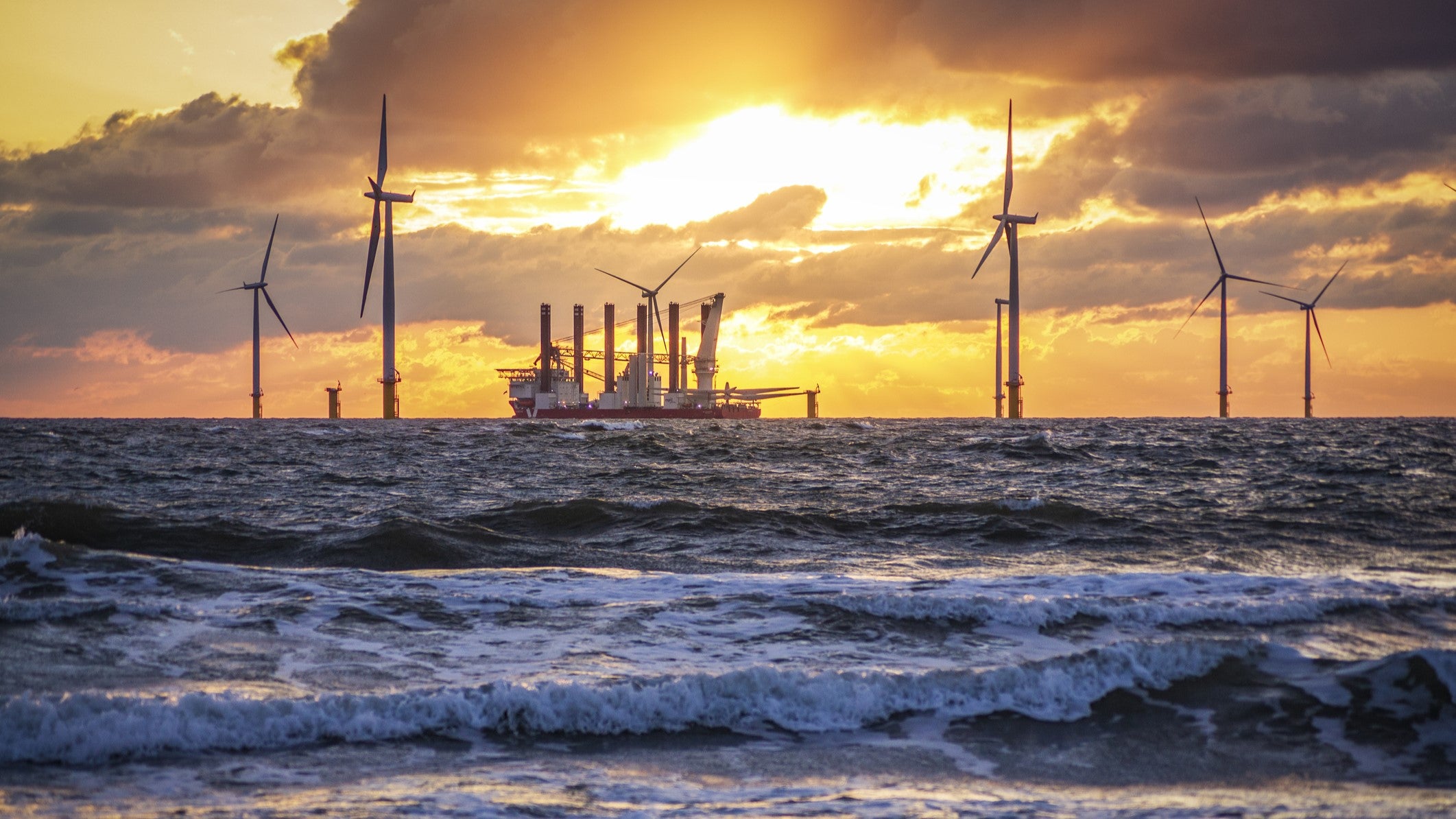
Up to 95,000 offshore energy jobs could be at risk in the UK’s oil, gas and wind industries unless investment in renewables increases, according to a new report.
The Powering up the Workforce report from Robert Gordon University suggests that retaining the offshore workforce will be crucial in the expanding renewables sector, as the young industry needs skilled workers. However, the sector currently offers only limited capacity for those transferring out of the shrinking oil and gas workforce.
Indeed, research from GlobalData, Energy Monitor‘s parent company, suggests that hirings for both have fallen during 2023.
Renewables transition: impact on UK offshore energy jobs
The Powering up the Workforce report projects that a successful transition to renewable energy could see the UK offshore energy workforce increase by 50%, from 150,000 jobs in 2023 to 225,000 by the end of 2030.
It states that this would require rapid investment into UK capabilities during the ‘Goldilocks Zone’ – the period between 2024 and 2028 when the supply chain capacity and capability can best be sustained, developed and invested in to optimise the offshore energy workforce.
However, fears around the slow expansion of offshore wind threaten this optimisation, particularly as it was announced last week that no bids had been made for new offshore wind project contracts at the recent government auction.
Developers have been deterred as inflation has driven up costs internationally, and disrupted supply chains have created delays. In the UK, offshore wind companies have had to navigate a convoluted approach towards renewable energy from the government, which is legally bound to reach net-zero emissions by 2050 but intends to do so in a “proportionate and pragmatic way“.
Slowing growth and developer uncertainty pose a risk to the oil and gas workforce, as transferring across offshore sectors becomes more difficult. It also puts existing offshore wind jobs at risk by deterring further investment.
Professor Paul de Leeuw, director of the Robert Gordon University’s Energy Transition Institute, said in a statement: “With investment at risk and wind projects facing delays, the findings underline the present-day situation for the UK offshore energy industry and its stakeholders. Inaction or simply slow progress will mean that offshore energy job numbers overall could drop by 15% to 130,000 by 2030, making the path towards net zero even harder to negotiate.”
Indeed, GlobalData research indicates that there has already been a downturn in new offshore job postings in 2023, likely due in part to the uncertainty within the industry.
De Leeuw remains optimistic about prospects in the sector, though adding: "The UK possesses all the attributes and resources to realise the ambitions set out in government strategies and forward-looking industry programmes. The report clearly shows that with the right interventions at the right time, the UK can achieve its strategic energy goals in reaching its net zero objectives as well as protecting and significantly enhancing workforce numbers in the offshore energy sector."
Our signals coverage is powered by GlobalData’s Thematic Engine, which tags millions of data items across six alternative datasets — patents, jobs, deals, company filings, social media mentions and news — to themes, sectors and companies. These signals enhance our predictive capabilities, helping us to identify the most disruptive threats across each of the sectors we cover and the companies best placed to succeed.



